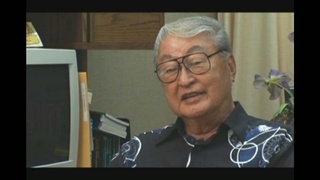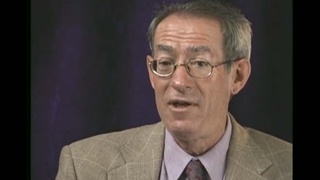Interviews
Being fair
Well, I think that meeting between myself and Jack Burns, when he first asked me—we talked about Hawaii—was to me a very turning point in my life, because the fear that I decided to…started thinking about becoming an elected official here.
And it’s not only the decision that was made then. But, the reason why I became a candidate…and I became a candidate then, because I felt that Hawaii did not offer equal opportunity to Hawaii’s people, and it was based upon who you knew. And I felt very strongly that people should be able to advance on the base of their ability and their talent. And so that’s what motivated me to get involved in politics: the fairness issue.
And after I got elected, I suddenly faced the problem, what do I do now? How do I go about doing the things that I felt very strongly about? And I thought about how we can take away some of the opportunities that other people had now and have it transferred to others. But, I decided that it was the wrong thing to do, because if I did that, I would be responsible for practicing the same things that I felt very strongly against. And so I decided that what we had to do was to not take anything away from anyone but to open up more opportunities [siren sound] where more people can participate in the process here in Hawaii.
Date: December 15, 2003
Location: Hawai`i, US
Interviewer: Art Hansen
Contributed by: Watase Media Arts Center, Japanese American National Museum.







